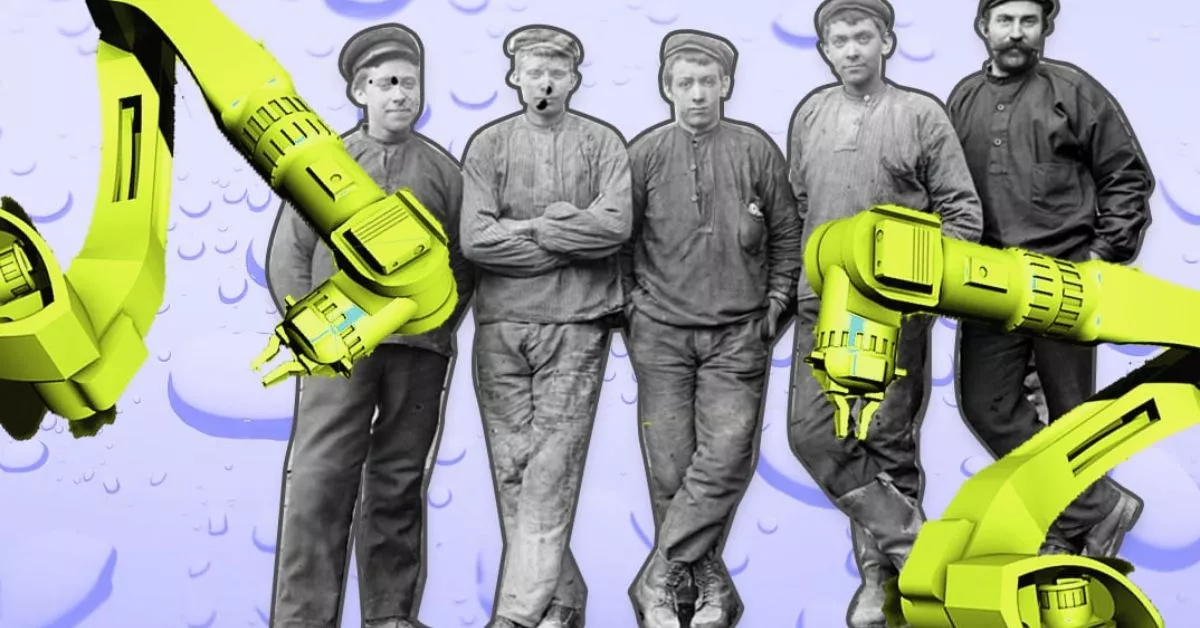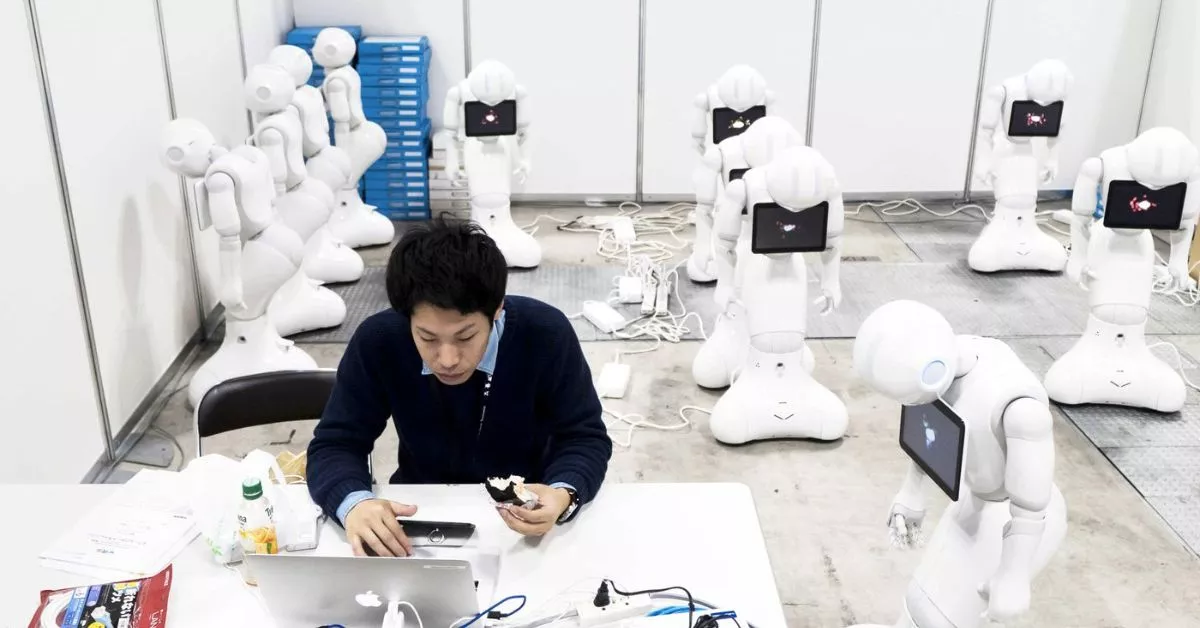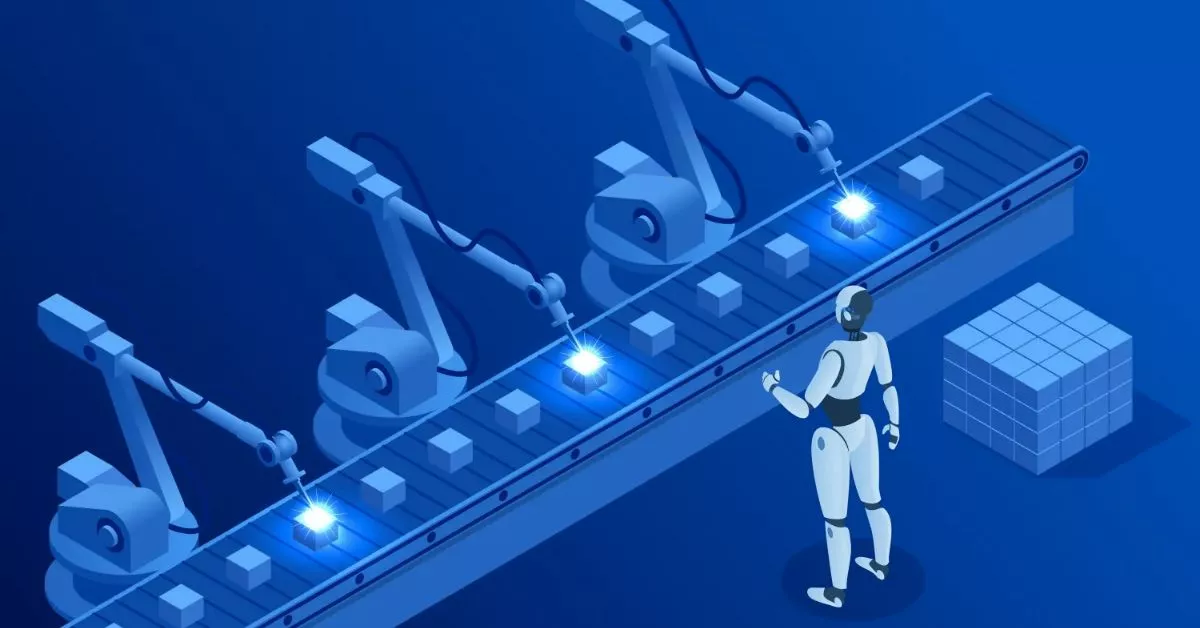Artificial intelligence (AI) is rapidly transforming the world of work, and blue-collar jobs are no exception. AI-powered machines and software are already being used to automate many tasks that are currently performed by human workers in factories, warehouses, and other blue-collar settings.
For example, AI-powered robots are now being used to perform welding, painting, and assembly tasks in factories. AI-powered software is also being used to automate tasks such as order picking and fulfillment in warehouses.
This automation is threatening the jobs of many blue-collar workers. A recent study by the McKinsey Global Institute found that up to 375 million workers worldwide could be displaced by automation by 2030.
There are a number of reasons why AI is such a threat to blue-collar jobs. First, AI-powered machines and software are becoming increasingly sophisticated and capable. They are now able to perform many tasks that were once thought to be the exclusive domain of human workers.

Second, AI-powered machines and software are becoming increasingly affordable. This is making it possible for businesses of all sizes to invest in AI automation.
Third, the global economy is becoming increasingly competitive. Businesses are under pressure to reduce costs and improve efficiency. AI automation is a way for businesses to do both.
The threat of AI automation to blue-collar jobs is a serious one. However, it is important to note that AI is also creating new jobs. For example, there is a growing demand for workers who can design, build, and maintain AI-powered systems.
There is also a growing demand for workers who can use AI to automate tasks in new and innovative ways. For example, AI is being used to develop new products and services, such as self-driving cars and AI-powered medical diagnostics.
Overall, the impact of AI on blue-collar jobs is likely to be mixed. Some jobs will be lost, but new jobs will also be created. It is important for workers to be prepared for the changing world of work and to develop the skills that will be in demand in the future.
Must Read- AI-Driven Technology: The Future of Aneurysm Treatment.
Blue-collar workers who are concerned about the threat of AI automation:
- Develop your skills. AI is creating a demand for workers with a wide range of skills, including technical skills, problem-solving skills, and communication skills. Focus on developing the skills that will be in demand in the future.
- Be adaptable. The world of work is changing rapidly. Be prepared to adapt to new technologies and new ways of working.
- Network with other workers. Networking with other workers can help you to learn about new opportunities and to find jobs that match your skills and interests.
The impact of AI on blue-collar jobs is a complex issue. However, by developing their skills, being adaptable, and networking with other workers, blue-collar workers can position themselves to succeed in the changing world of work.
How is AI impacting blue-collar jobs?
AI is impacting blue-collar jobs in a number of ways. For example, AI-powered machines and software are being used to automate many tasks that are currently performed by human workers in factories, warehouses, and other blue-collar settings. This automation is leading to job displacement for many blue-collar workers.
Software that are being used to automate blue-collar jobs:
- AI-powered robots are being used to perform welding, painting, and assembly tasks in factories.
- AI-powered software is being used to automate tasks such as order picking and fulfillment in warehouses.
- AI-powered self-driving trucks are being developed to automate the transportation of goods.
- AI-powered software is being used to automate customer service tasks in call centers.
- AI-powered software is being used to automate data entry and other administrative tasks.
What are the risks and benefits of AI for blue-collar workers?
The main risk of AI for blue-collar workers is job displacement. AI-powered machines and software are capable of performing many tasks that are currently performed by human workers. This means that many blue-collar workers could lose their jobs to AI automation in the coming years.
However, there are also some potential benefits of AI for blue-collar workers. For example, AI can be used to improve safety and working conditions in blue-collar jobs. AI can also be used to create new jobs and to improve the productivity of blue-collar workers.

Here are some specific benefits of AI for blue-collar workers:
- AI can be used to automate dangerous and repetitive tasks, making workplaces safer for workers.
- AI can be used to collect and analyze data to help workers make better decisions and improve their performance.
- AI can be used to create new jobs in the fields of AI development, maintenance, and support.
How can blue-collar workers prepare for the changing world of work?
Blue-collar workers can prepare for the changing world of work by developing their skills and by being adaptable. AI is creating a demand for workers with a wide range of skills, including technical skills, problem-solving skills, and communication skills. Blue-collar workers should focus on developing the skills that will be in demand in the future.
Blue-collar workers should also be prepared to adapt to new technologies and new ways of working. The world of work is changing rapidly, and blue-collar workers need to be able to adapt to these changes in order to succeed.
More AI Updates-
- AI-Driven Technology: The Future of Aneurysm Treatment.
- 5 Best Backlink Checker Tools of 2023.
Specific things that blue-collar workers can do to prepare for the changing world of work:
- Get training in new skills, such as AI, robotics, and data science.
- Become more adaptable and willing to learn new things.
- Network with other workers and professionals to stay up-to-date on the latest trends and developments.
- Be prepared to change jobs or careers if necessary.
What are some new jobs that are being created by AI automation?
AI automation is creating a number of new jobs, including:
- AI engineers
- AI data scientists
- AI trainers
- AI ethicists
- AI safety experts
- AI maintenance technicians
- AI sales and marketing representatives
- AI customer support representatives
- AI business analysts
- AI project managers

What are some government policies that can help to support blue-collar workers in the age of AI?
Governments can help to support blue-collar workers in the age of AI by:
- Investing in education and training programs to help workers develop the skills they need to succeed in the age of AI.
- Providing financial assistance to workers who are displaced by AI automation. This assistance can help them to transition to new jobs or to start their own businesses.
- Updating labor laws to protect the rights of workers in the age of AI. For example, governments can require employers to provide severance pay to workers who are displaced by AI automation.
The impact of AI on blue-collar jobs is a complex issue. However, by developing their skills, being adaptable, and networking with other workers, blue-collar workers can position themselves to succeed in the changing world of work.
